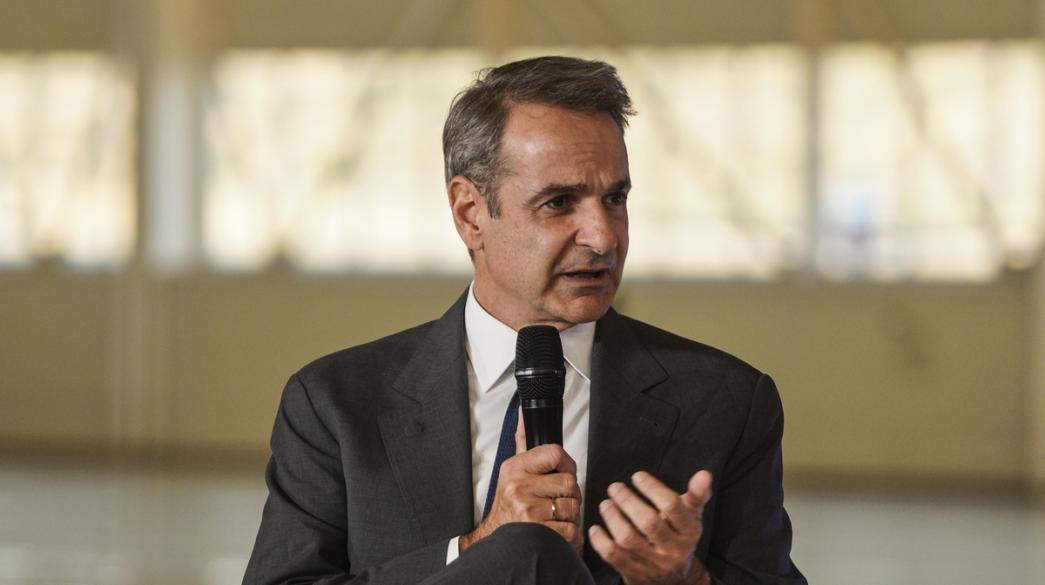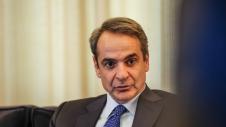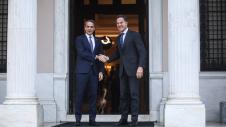In statements as he arrived for the European Council in Brussels on Thursday, Prime Minister Kyriakos Mitsotakis stated that European leaders will be discussing mainly three topics.
"We will have the opportunity to discuss with President Zelenskiy and to hear his proposals on the Victory Plan he has prepared. I want to repeat Greece's firm position, which is also the position of the European Council, that Ukraine will be the one to choose the time when it will begin the negotiations with Russia for peace. But it must be able to do this from a position of strength not from a position of weakness," the prime minister said.
"We will have a first discussion on competitiveness issues, which we will also examine in great detail at the informal European Council in Budapest. I want to reiterate the Greek government's full support for the proposals that Mr Draghi has put forward through his conclusions on EU competitiveness issues," he continued.
Mitsotakis also stressed: "Let me say once again that as we are today, the EU's ambitious goals are not in line with our economic means and our capacity to be able to achieve them."
The premier said that the European Council will also focus on the issue of migration. "For five years Greece has been at the forefront of implementing a very tough but fair policy to address the issues of illegal immigration. I am pleased to see that gradually, both the European Council and the European Commission have come very close to the Greek positions, giving very high importance to the external dimension of the issue of illegal migration and the effective management of the EU's borders," he said.
"What is missing from our European strategy is an effective returns policy," Mitsotakis said, adding that he was "particularly pleased that this is something also recognised by the President of the European Commission, whom it seems we will authorise to be able to present innovative proposals to the Council so that we can make the returns of those who are not entitled to asylum to their countries of origin as effective as possible."
He emphasised that returns must also be made to Turkiye, because this is also part of the EU-Turkiye agreement of 2016.
"So I look forward to a very substantive debate on an issue that is of concern to the whole of Europe, but an issue that is not high on the list of problems that our Greek citizens say they are concerned about because, quite simply, Greece has been very effective in dealing with the issue of illegal migration. So I believe that we can make a substantial contribution by bringing the Greek experience to the European Council," he concluded.
Replying to a question from a foreign journalist on this issue, Mitsotakis stated the following: "Returns are the missing link in our migration policy and, as you know, Greece has been implementing for the past five years a very tough but we believe fair migration policy. And I am happy about the fact that the European Council has gradually recognised the importance of the external dimension of migration policy and the need to effectively protect the European border. But, of course, as you know, the Pact on Migration and Asylum does not address the issue of returns.
We cannot accept the fact that we are not effective [in dealing] with those who are not entitled to protection status within the European Union."
He concluded by saying that he was "eager to find out more about the innovative solutions proposed by the European Commission and I am happy about the fact that we recognise that we need to think out of the box in order to address this pressing concern."
Agreement with Ukraine
Mitsotakis and Ukrainian President Volodymyr Zelenskiy on Thursday signed a bilateral agreement for cooperation between Greece and Ukraine on security, on the sidelines of the European Council in Brussels. Greece is now the 21st European Union member-state to sign a similar bilateral agreement with Ukraine.








